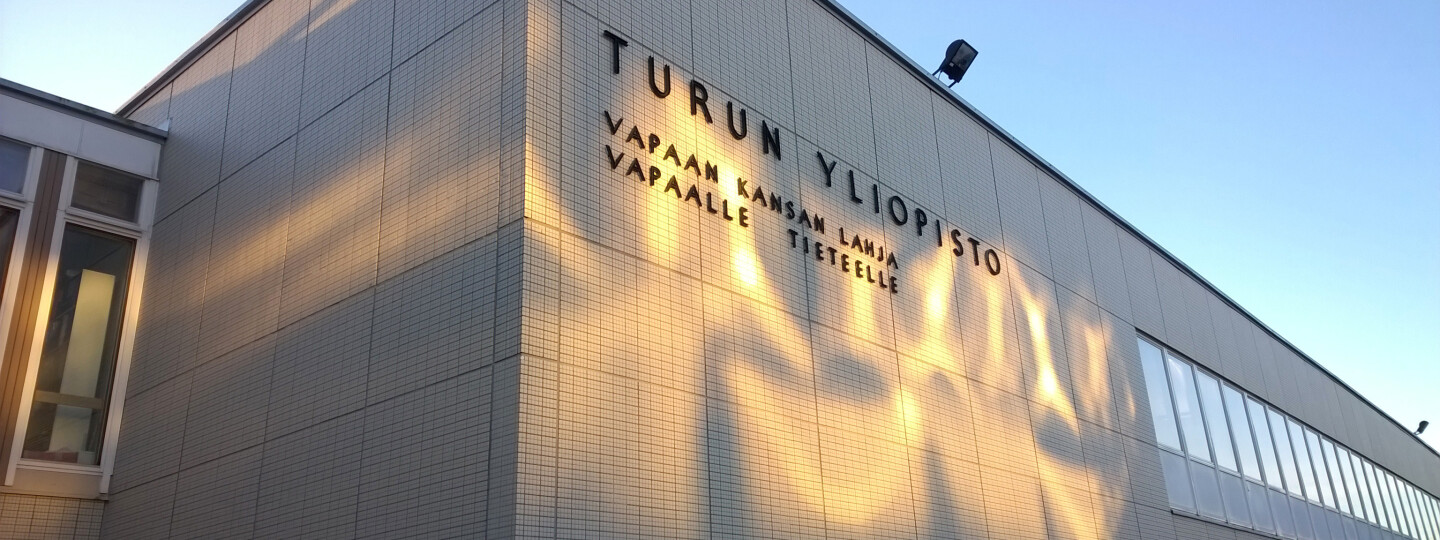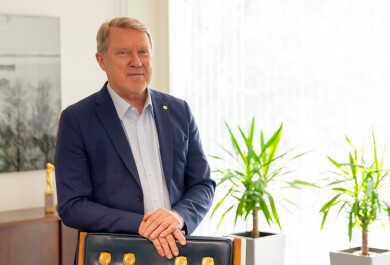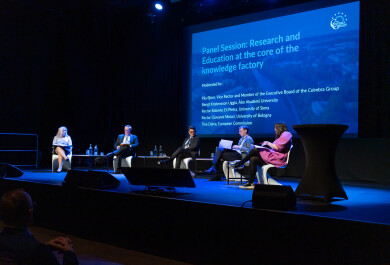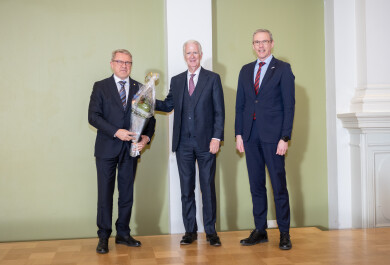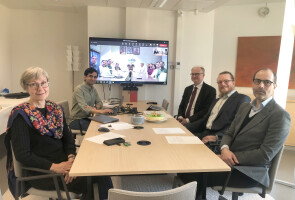Two seed-funded projects focusing on education and teaching facilitate cooperation with partners in Africa and India.
Research on learning and education is recognised as one of the top priorities at the University of Turku. Through collaborative global cooperation projects in educational research, teacher training, and educational innovation, the University is committed to sharing and expanding its expertise in the field of education.
Over the years, the University of Turku has been involved in various collaborations with educational institutions around the world. Recently, the University supported educational reform in Sri Lanka by providing education expertise, and is currently participating in the development of principal training in Chile. Furthermore, Finnish and international students of the University can benefit from a variety of study and training programmes in the field of education. The University is also part of the Global Innovation Network for Teaching and Learning (GINTL).
In spring 2022, international projects related to global networks at the University of Turku applied for internal seed funding under the Internationalisation Programme of the Ministry of Education and Culture. Two of the projects that received seed funding, namely Strategic Partnerships for Quality Teacher Education and the Cooperation project with Tata Steel Foundation, are related to GINTL and facilitate global cooperation in the promotion of education and teaching. Strategic Partnerships for Quality Teacher Education project is a collaboration with partners in Namibia and Somalia. The Cooperation with Tata Steel Foundation project focuses on the ways the Finnish educational excellence can be utilised on a large scale with the 1000 schools projects in India.
Cooperation in the Development of High-Quality Teacher Education
In Somalia and Namibia, as in many developing countries, the quality of teacher education is relatively low because it is short, poorly organised, and limited to theory, leaving prospective teachers insufficiently prepared for teaching in the classroom. Consequently, low quality in teaching leads to poor learning outcomes for pupils of all ages. Resulting low levels of education have a negative impact on many levels of society, including the social, economic, and political aspects as well as the country's overall stability. The cooperation project Strategic Partnerships for Quality Teacher Education aims to specifically address this issue by further developing teacher training in Namibia and Somalia.
The GINTL Somalia team, coordinated by Training Expert Mirjami Jeskanen and Key Account Manager Ari Koski from the University of Turku, acknowledges that high-quality education plays a significant role in the development of society, economy, and working life. Quality teachers are in a key position in this development from preschool to higher-education levels which is why the development of teacher education is an investment for the future. Finnish partners and universities have a duty to share their expertise and experiences to support this development.
The long-term objective of the project Strategic Partnerships for Quality Teacher Education is to create the foundation for and initiate the development of a systematic operational model for teacher education development in collaboration with key stakeholders in the target countries Somalia and Namibia.
"As we know, high-quality teaching plays a key role in the development of society, so the development of teacher education is extremely important. The aim of this project is to create a basis for the development of teacher education in Somalia together with Somali National University. We are in the early stages of collaboration but it is great that we get to build a connection between Somali National University and the University of Turku," says project coordinator Mirjami Jeskanen.
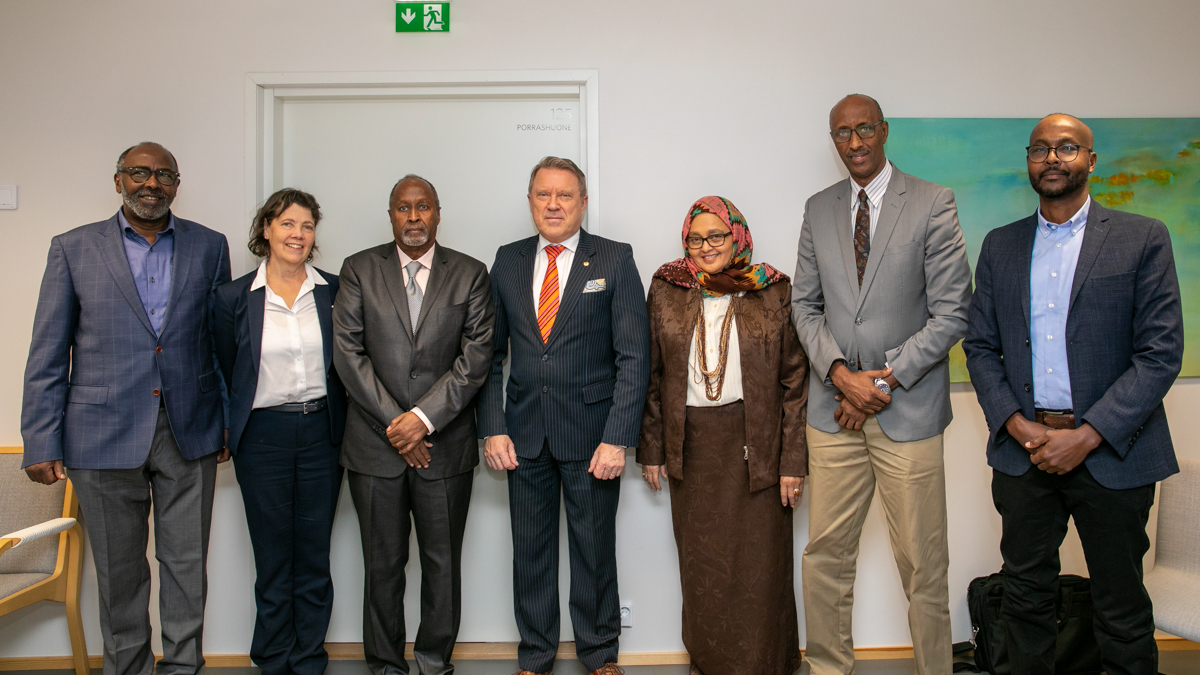
"In Namibia, Finnish education is well-known and Finnish partners are also trusted," says University Researcher Teija Koskela who recently visited Namibia. "Long-term experience in cooperation facilitates the planning and implementation of joint projects."
Short-term goals of the Strategic Partnerships for Quality Teacher Education project include the development of flexible teaching materials and solutions to make teaching flexible and feasible, and conducting pilot training for teachers, teacher trainers, and key officials.
Developing New Teaching and Learning Methods in India
The cooperation project with Tata Steel Foundation in India provides support for teachers and students in mathematics and science education. More specifically, the Turku Centre for Learning Analytics (TRILA ) is a global expert in digital learning and is best known for its award-winning flagship product ViLLE/Eduten. TRILA uses the ViLLE learning platform as a "digital bridge" to export Finnish education excellency to its Indian partners and lay the groundwork for a long-term partnership with Indian stakeholders.
"Our sub-project is divided into two projects conducted with the project partners TATA Steel and Aspire foundations. The first aims to utilise the ViLLE platform in delivering learning content on “hard-to-teach” content in 6th to 8th-grade science and mathematics. This process includes developing new pedagogically high-quality content, part of which is digital, and part is in-classroom and out-of-classroom activities. A vital feature of the new materials is that they are divided into pictorial, pictorial-verbal, and verbal (English) to overcome the illiteracy challenge in rural schools in India," explains Pekka Räsänen, Professor of Practice at TRILA and project coordinator.
The teaching and learning material developed should cover a wide range of needs. For instance, the materials must be simple to comprehend so that field teachers can easily put together their own lessons from the relevant parts. In addition, the material is characterised by a systematic structure with systematic instructions, clear directions, and practical examples. The lessons must be easy to carry out with simple props, teaching materials and equipment. The material follows the learning by doing approach as the emphasis is on experimenting and trying things out to enable students to draw conclusions.
"This approach builds on increased participation of the students at different skill levels. These are available to our partners as part of the University of Turku materials and support for the 20 pilot schools. The second project consists of pilot studies on using individualised digital education in Bridge Schools for street kids and Community centres run by our partners in India," Räsänen describes further.
Seed funding Helps Projects in Early Stages to Build Long-Term Partnerships and Sustainable Improvements
Strategic partnerships for quality teacher education and TRILA's collaborative project with Tata Steel Foundation are currently in the early stages of education collaboration but aim for sustainable and effective education solutions and long-term partnerships with local stakeholders.
"The aim with both Somalia and Namibia is to build strong and sustainable partnerships and work together towards quality teacher education, also in early childhood teacher education," Mirjami Jeskanen highlights.
This goal can be achieved by building on and expanding already existing collaborations, such as those with Namibian partners, but also with other Finnish universities, including the University of Eastern Finland's collaboration with Namibia and University of Helsinki's collaboration with Somalia.
The cooperation project between TRILA and the Tata Steel Foundation in India is also designed for the long-term. In the current pilot phase of the seed-funded project, a systematic approach between the partners is being explored and developed to ensure the continuation of this project in the future.
"The Eduten-India office will provide teacher training and technical support for this project, and it also helps us to collect teacher and student interviews about the experiences. The public-school system in India is still in its early steps in adapting network-based technologies at schools. This kind of pilot will offer two critical stepping stones for us in this process: first, it provides us with essential learning experiences, and second, there will be local teachers with relevant skills and knowledge on using digital math learning tools," Pekka Räsänen comments on the future of the project.
